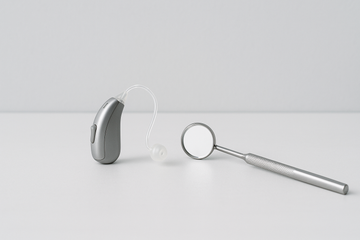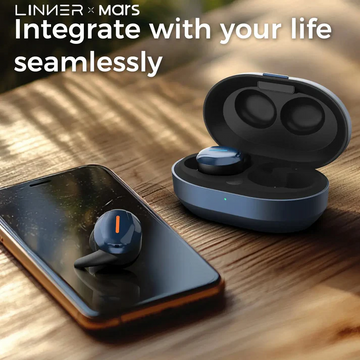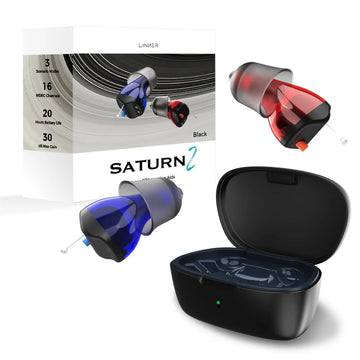Hearing loss is a challenge that immensely impacts the lives of millions of older adults in America in their daily living, connections, and autonomy. Of course, one of the most frequent questions people ask is: Does Medicare pay for a hearing test? The answer is rather involved. Although Medicare has great coverage of most health services, hearing care is one of its underserved options. The knowledge of what is covered by Medicare and what it does not cover, and the alternatives, is essential to an individual thinking of undertaking a hearing assessment or treatment. This article discusses the coverage of Medicare, services related to hearing, and affordable approaches such as Hearing Aids Otc.
Understanding Medicare Coverage
Medicare is the national health insurance program for citizens over the age of 65, as well as some individuals with disabilities. It is subdivided into a few sections:
Medicare Part A covers the following: Hospital stays and inpatient care.
Medicare Part B consists of outpatient care, medical equipment and supplies, and preventive services.
Medicare Part C (Medicare Advantage) includes bundled plans by private insurers.
Medicare Part D covers prescription drug Medicare.
In terms of hearing, Medicare coverage has been blamed as inadequate. Part B also provides diagnostic hearing exams, but only under specific conditions. Hearing tests, fittings, and hearing aids themselves are usually not covered. This leaves a lot of beneficiaries in search of cheaper substitute ones.
What Hearing-Related Tests Does Medicare Cover?
Medicare Part B may cover diagnostic hearing and balance tests, but only when they are referred by a physician or other healthcare professional, and during the test, determined that medical treatment is necessary. Consider an example of a sudden loss of hearing, dizziness, or vertigo; in this case, Medicare may always cover the hearing test that is part of the diagnosis process.
Medicare does not cover routine hearing screenings, though. This is because you might be required to pay out of pocket to have your hearing examined as part of preventive care or to consider hearing aid solutions. All Medicare Advantage (Parts C) plans may have additional benefits, such as hearing exams and hearing aid discounts, but coverage varies by plan.
Therefore, while Medicare does offer some limited coverage, the answer to Does Medicare pay for a hearing test? It only does so in specific medical cases.

The Best Choice for Hearing Tests
If you suspect you have hearing loss but want a low-cost test, you can still get low-cost hearing tests through other channels:
Community Programs and Clinics
There are community health centers and nonprofit organizations that run community hearings by conducting free or reduced-price hearing tests.
Retailers and Pharmacies
Some of the largest stores and pharmacy chains offer free hearing tests as part of the hearing aid brands they offer.
Online Hearing Tests
Companies such as Linner provide free online hearing tests to individuals in order to determine whether they may benefit from using hearing aids. Linner hearing aids will provide you with the following services
Clinically Verified Accuracy: Experience reliable precision with Linner’s hearing tests. Backed by clinical validation studies, our tests ensure trustworthy results. Whether it’s your first hearing check or a professional reference, Linner provides scientifically supported accuracy.
Completely Free: Hearing health is essential—it shouldn’t come at a cost. Linner’s hearing tests are entirely free, allowing you to assess your hearing without any expense. We also recommend regular hearing tests to monitor your hearing over time.
Online and At Home: Skip the clinic visits and long appointments. With Linner, you can conveniently take your hearing test anytime, anywhere—right from the comfort of your home using your own device.
Personalized Product Recommendations: Receive tailored suggestions based on your hearing needs. From entry-level devices to advanced features, Linner will help you find the best hearing solution according to your test results.
Recommended Hearing Aids for Your Needs
Understanding your hearing test results is the first step toward better hearing. Linner can then guide you to the hearing aids that best fit your lifestyle, preferences, and level of hearing loss.
Linner Mars OTC Hearing Aids
The devices are in-the-ear bluetooth hearing aids with Bluetooth connectivity, noise cancellation, and a customizable app to adjust settings to individual needs. The hearing aids are intended for adults with mild to moderate sensorineural loss. Among them they include Focus Mode, which utilizes four microphones to provide a clearer speech in loud settings, a discrete earbud-like design, and a case that can be charged, providing up to 32 hours of usage.
Linner Saturn OTC Hearing Aids
A more discreet hearing solution is the cic hearing aids (completely-in-canal) style, which is offered in the Saturn model. These are so unnoticeable that they can hardly be seen by others. So how long do these hearing aids last? Saturn CIC hearing aids offer up to 20 hours of battery life, even with the charging case, and up to 96 hours of battery life. They also feature intelligent noise cancellation and feedback control. They don't offer Bluetooth, but they're easy to use, affordable, and comfortable, making them suitable for seniors or first-time hearing aid users.
By providing cost-effective and advanced equipment sections, such as the Mars and Saturn, people who are not accommodated by the Medicare restrictions can find a solution.
FAQ
Q: Does Medicare pay for a hearing test as preventive care?
No, Medicare does not cover routine and preventative hearing tests. Coverage is limited to results ordered by a doctor to help in making a diagnosis.
Q: Does Medicare cover hearing aids at all?
No, hearing aids and fittings are not covered by Medicare. Partial coverage or discounts are allowed by some Medicare Advantage (Part C) plans.
Q: How can I get affordable hearing aids without Medicare coverage?
OTC hearing aids make it affordable to many individuals as they are cheaper and offer many more advanced features, such as the Linner Mars and Linner Saturn.
Q: Are OTC hearing aids safe and effective?
Yes, Best Otc Hearing Aids are approved by the FDA to be used by adults with mild to moderate hearing impairment. They are built to be user-friendly, affordable, and have good operational performance.
Q: Can I use my HSA or FSA to purchase OTC hearing aids?
Yes, many OTC hearing aids, including Linner models, are eligible for HSA/FSA reimbursement, providing more financial flexibility.
Summary
Does Medicare pay for a hearing test? Only in some cases. A diagnostic test prescribed by a doctor to address the hearing problem related to a medical condition will be covered by Medicare. Routine screenings, hearing aids, and associated services, however, remain uncovered, and many beneficiaries seek alternative offerings.
Hearing Aids such as Linner Mars OTC Hearing Aids and Linner Saturn OTC Hearing Aids provide an affordable OTC solution that provides the advanced technology patients are used to at an affordable price. Together with free or low-cost hearing tests, they make sure that improved hearing does not necessarily have to be connected with a daunting financial prospect.
Medicare hearing coverage is on a minimal level, but still, people can find a way to preserve their hearing health, enhance communication, and enjoy an improved life.



![Linner Mars OTC Hearing Aids [FSA & HSA Eligible] Linner](https://cdn.shopify.com/s/files/1/0610/0602/0765/files/Linner-Mars-OTC-Hearing-Aids-_FSA-_-HSA-Eligible_-Linner-110039213.webp?v=1725865495&width=600)
![Linner Saturn OTC Hearing Aids [FSA & HSA Eligible] - Linner](https://cdn.shopify.com/s/files/1/0610/0602/0765/files/LINNER-Saturn-Hearing-Aids-Linner-206321338.webp?v=1751427831&width=600)



![Linner Mercury Clarity OTC Hearing Aids [FSA & HSA Eligible] Linner](http://www.linnerlife.com/cdn/shop/files/Linner-Mercury-Clarity-OTC-Hearing-Aids-_FSA-_-HSA-Eligible_-Linner-110038953.webp?v=1725853434&width=360)

![Linner Mars OTC Hearing Aids [FSA & HSA Eligible] Linner](http://www.linnerlife.com/cdn/shop/files/Linner-Mars-OTC-Hearing-Aids-_FSA-_-HSA-Eligible_-Linner-110039213.webp?v=1725865495&width=360)
